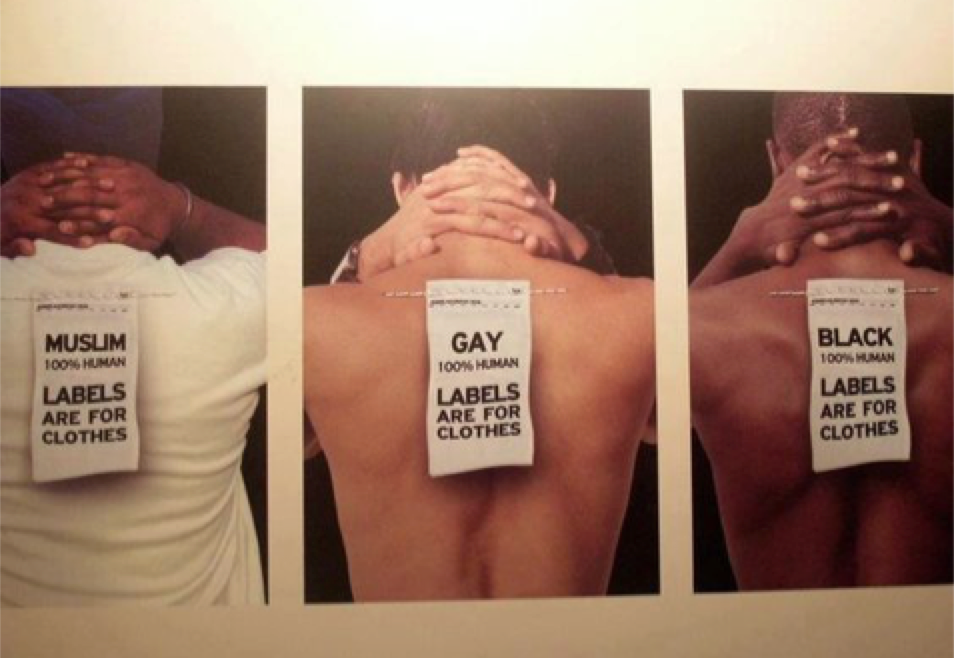(Don’t) label me
I get why brands started using labels. If I’m Levi’s and you’re buying my jeans, it makes sense that I should make sure everyone else knows you’re wearing Levi’s. You’re giving me money, and now you’re giving me free advertising too. It’s win-win.
But before long, consumers started to actively desire the labels. Not the clothes; the labels. They wanted to walk around with someone else’s name written on them on giant letters.
D&G or FCUK or whoever was a shorthand symbol of style, sophistication, taste, exclusivity and also – grotesquely – how much you’ve spent. You wore it to be seen, and to be talked about, and to be photographed.
Now though, buying Lush and Patagonia and SKINS – to name just three – is still a shorthand for style and taste, but now also how much you care. You buy Toms shoes, not just because you like their products, but because they stand for something. Something above and beyond just making money. Something you admire and share. Sustainability. Ethics. Equality. Take your pick.
So how did this evolution come about? When did it stop being about money and gold and names and showing off?
It’s hard to pinpoint it to one specific confluence, but to my eyes it simply matches the way the world is going. 20, 10 or even five years ago, we all lived lives based on ‘stuff.’ You were what you owned. Success was very material.
But now, the world moves slightly differently. Our lives are much less sheltered and increasingly out in the public domain. We collect self-worth through other people’s button-presses; a ‘like’ here, a ‘share’ there, and – if we’re really lucky – a ‘heart.’
So in this environment, we share what we think our friends will best respond to. Imagine if your friend did nothing but take photos of expensive shoes, designer labels and cars? Would they still be your friend after a week of this nausea?
Instead, the way other people judge our stock is by experiences. But a true experience can’t just be captured in a photo. What does a canny snap of you bungee-jumping in New Zealand really say? Sure it’s an experience, but it essentially has the same self-involved value as vintage Hermes handbag.
No, it seems to me that an experience has to stand for something. It has to lead to your advancement, or ideally the advancement of others as well. Now our values define us, not our bank balance. Simple human values that don’t judge others based on superficial and transient qualities.
And so, like a palindrome, we find ourselves back where we began. Because I still get why brands use labels. Kenco is just a coffee brand, so why should a customer care about anything they say? They shouldn’t really. But by taking social responsibility in the areas around their growing fields in Honduras, they can sell more than just coffee. They can sell something that their consumers really do care about. Sustainability. Ethics. Equality. Take your pick.
